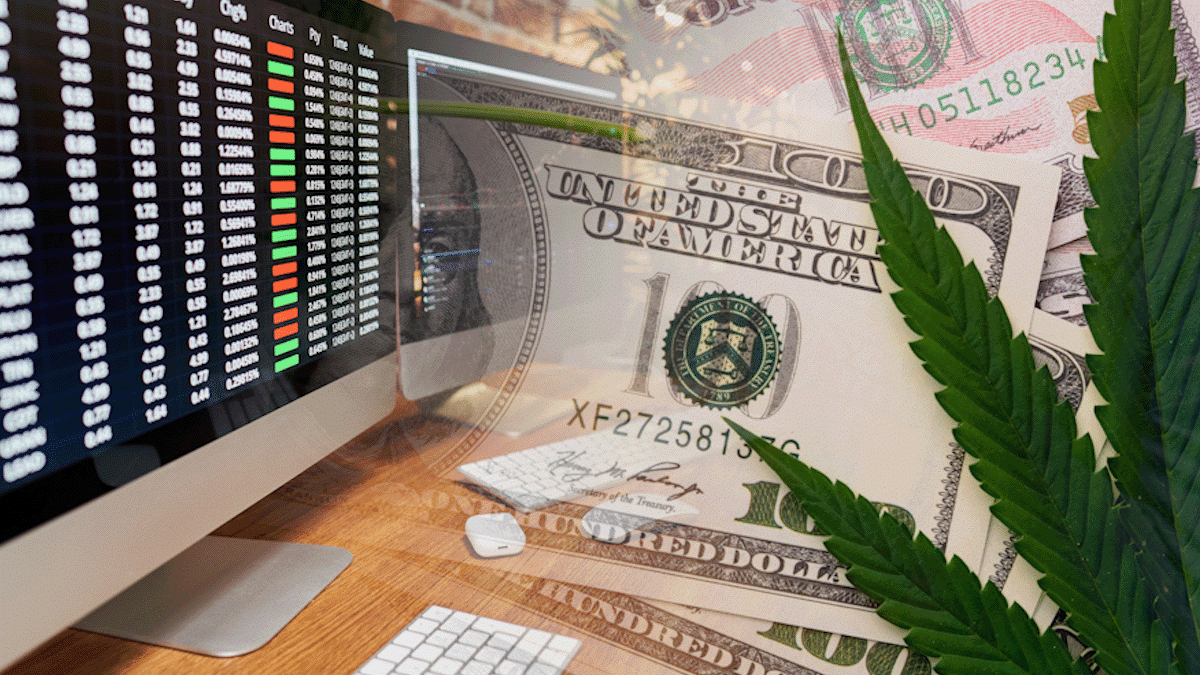Marijuana Industry, How You Doin’?
Nearly Nine Months into the First Year of Recreational Legalization, How has the Face of the Industry Evolved?
Within the last several months, the marijuana revolution has hit a fever pitch. After a “trial” period where states watched the results of Colorado’s efforts to become the first to legalize marijuana for recreational use, the results have concluded that tax benefits from that move made a considerable impact.
Colorado Leads the Charge
The state collected nearly $20Million in its first fiscal quarter alone (medical & recreational sales) and month over month, the numbers support strong growth as well. Since January, revenues increased 110% from $3,519,756 to $7,407,450 in July (the state’s most recent revenue posting).
During the first six months of legalized recreational marijuana, only owners of medical marijuana businesses could apply to open recreational marijuana stores. Pot shops were only allowed to sell marijuana that they grew themselves, similar to the state’s medical MJ program but that’s all about to change; Colorado’s recreational marijuana industry is about to get a lot larger.
July marked the first time any adult Colorado resident could apply for a retail marijuana business license. Newly licensed marijuana businesses can begin opening in October, and at that time the recreational marijuana industry will be allowed to specialize in one aspect of the business if they choose. Retail stores will no longer be required to grow the marijuana they sell and can elect to purchase marijuana from independent growers.
According to a recent Huff Post article, Toni Fox, owner of 3D Cannabis Center in Denver thinks that wholesale and retail prices will come down at most stores and there will still be an excessive amount of harvested cannabis available and unneeded.
Washington State still Trying to Get Its Footing
The second state to open for legal recreational sale, Washington, has faced some obstacles during its infancy within the new industry. A report released by Moody’s, the credit agency, finds that the exorbitant amount of taxes in conjunction with other options like medical marijuana and even the “black market” are to blame for WA’s early stutter step. “The tax structure in Washington State is likely to be a major deterrent for consumers who do not see the value in obtaining the product from a storefront as opposed to a medical dispensary,” writes Moody’s Analyst Andrea Unsworth, the report’s author.
Washington has implemented a three-tier excise tax (of 25 percent) at the production, wholesale and retail levels. The excise tax is in addition to the consumers’ state and local sales taxes, and to the state business and occupation tax all businesses in Washington pay. In all, Moody’s estimates an effective tax rate of 44 percent at the retail level. Why would anyone elect to pay a higher tax when getting approval for medical marijuana is reportedly relatively easy?
Currently, Washington State exempts medical marijuana from the additional excise taxes so it is only subject to the 9.6 percent sales tax. By comparison, Colorado, the only other state where the sale of recreational marijuana is legal, has a 15 percent excise tax only on the wholesale level and a 12.9 percent tax on retail sales.
Washington’s forecasters last revisited their estimate in June and anticipated $51.2 million in revenues from fees and taxes for the 2015 to 2017 budget and more than two times more for the following two years.
New Markets for Medical: New York, Florida, Illinois
On June 20, 2014, the New York state legislature approved a bill that would allow patients to use marijuana for limited medical therapeutic purposes by means of “non-smokeables”. This includes oils, waxes, edibles, and even vaporizers for alternatives to packing a pipe or rolling up the plant in paper.
The bill also sets forth a very specific certification process by which a practitioner certifies that the patient is likely to receive therapeutic or “palliative benefit” from the use of marijuana. Only patients aged 21 or over who suffer from one of the ailments specified in the bill—cancer, HIV/AIDS, amyotrophic lateral sclerosis (ALS), Parkinson’s disease, multiple sclerosis, certain spinal cord injuries, epilepsy, inflammatory bowel disease, neuropathies, or Huntington’s disease—will be eligible to use the drug as part of their treatment.
Governor Cuomo signed the bill into law on July 7 but the bill will not take effect until 18 months after its signing. Supporters and medical providers are turning their attention to the state’s efforts to implement the program and whether any additional diseases will become eligible for treatment. The potential for market share is massive in New York as the bill has specified that the state will only award five contracts to grow marijuana. Each of the five growers will be able to operate up to four dispensaries, meaning there will be only 20 dispensaries across the state.
Florida has initially taken a much more prudent approach in consideration of the movement. Governor Rick Scott signed a law on June 16 allowing for the limited use of a special strain of marijuana called “Charlotte’s Web” to treat those suffering from epilepsy, cancer and amyotrophic lateral sclerosis (ALS), known as Lou Gehrig’s disease. This strain named for a Colorado girl whose epileptic seizures have shown some response to the drug, is not for smoking, and is specially cultivated to be very low in tetrahydrocannabinol (THC).
Similar to New York, five dispensary licenses will be awareded to “professionals who have operated plant nurseries for at least 30 consecutive years and are producing at least 400,000 plants”. The regulations for the five centers are similar to dispensary rules in other medical marijuana states where the state will conduct background checks on owners and employees, and dispensaries must meet heavy security requirements and strict licensing guidelines; an operator must also post a $5 million bond before opening.
In a recent press release, Florida could hold a lottery to decide which companies receive the five licenses to cultivate cannabis and sell cannabidiol extract, with the winners forced to pay a $150,000 fee for the permit (on top of the $5m bond).
Furthermore, according to the state’s Department of Agriculture and Consumer Services, only 41 nurseries meet the criteria. According to the draft rules, if more than one nursery in one of the five geographic regions applies for a license, the state would hold a lottery for the regional license.
Under a law signed by Democratic Governor Pat Quinn, Illinois children and adults with epilepsy will be allowed to use marijuana to ease their symptoms. The move to add epilepsy and other seizure disorders to the list of conditions legal to treat with marijuana or its extracts comes as numerous states have made medical use of the drug legal; most notably, New York.
Though the pool for the IL marijuana market is small (the total market is expected to be 10,000 to 30,000 patients, according to Dan Linn, executive director for the Illinois chapter of the National Organization for the Reform of Marijuana Laws) this is yet one more step in the right direction for the loosening of laws surrounding marijuana. More and more states have continued to pursue options similar to NY and IL so even given the smaller user population, the numbers (Sourced from the National Organization for the Reform of Marijuana Laws, the State of Illinois) are fairly significant especially when considering this marketplace has yet to be truly tapped.
Dispensary supplies will come from licensed growing operations. One cultivation center will be in each Illinois State Police District and all growing operation staff and dispensary staff must be licensed by the state. Grow center applicants need at least $500,000 in cash, and must pay a $25,000 non-refundable application fee. Dispensary applicants need $400,000 in cash and must pay a $5,000 non-refundable application fee. As far as the taxes go, they are a bit different from Washington states’; Cultivators will pay a 7% “privilege tax” on sales to dispensaries and patients/caregivers will pay a 1 percent sales tax.
Industry Trends & Potrepreneurs
From food trucks to coffee shops Potrepreneurs are positioning to cash in on this new cash crop. For instance food company, MagicalButter is taking its “Samich” truck to US cities where marijuana is now legal, and its journey began in April in Denver; “Samich”, the company says, stands for “Savory Accessible Marijuana Infused Culinary Happiness.” MagicalButter pledges that each product will be packed with between 30 and 100 milligrams of THC; this constitutes a healthy daily dose, according to Medical Jane, the marijuana enthusiast site. The truck’s signature “Samich” sandwich consists of nut butter, jelly, and banana and they also produce truffle popcorn made with ganja.
As if a mobile MJ food truck wasn’t enough, there’s a budding business turning toward one of the world’s most heavily consumed beverages; coffee. Marijuana customers in Washington state will soon be able the purchase marijuana-infused coffee called “Legal” that promises to give customers a caffeinated high if all goes to plan. Product developer Adam Stites told the MyNorthwest.com, “The coffee drinks give you an uplifting head high. We call it the wake and bake drink. We want the experience to be more similar to that if you had a nice IPA or glass of wine. We don’t want to pack so much THC into every one of our drinks that it’s unpleasant, especially for people that are just getting into marijuana.”
The cold coffee will be sold in glass jars that each contains approximately 20 milligrams of THC and will come in plain and cream and sugar flavors. The interview also cites that “Legal” will also feature three juice-based sparkling sodas: Rainier Cherry, Lemon Ginger and Pomegranate. Each is made with fresh juices and a different strain of cannabis for differing effects.
Finally on the list of unique businesses coming out of Washington is something that almost every American has used one in his or her life: delivery! That’s right, according to the Daily Mail, University of Washington students Josiah Tullis and Megh Vakharia have launched a phone app to deliver cannabis to recreational and medical-marijuana users.
“We’re delivering green to make green!”
Their app, Canary, is a smartphone application that will allow verified members in Seattle and Denver to order different strains of cannabis from dispensaries and producers the company has partnered with. The amount a customer can order (in ounces or grams) depends on the state law, according to the app’s website.
Canary abides by all recreational and medicinal cannabis laws on a state-by-state basis. When a member first signs up, the app requires proof that a potential member is able to enjoy cannabis legally in his or her state – they take a picture of their ID or medicinal marijuana card during signup and send it through the app for verification. Once verified, users are good to order.
The company charges an extra 10 to 25 percent on top of the cost of the pot, and gives a cut to the courier. “Because the exchange of money (the point of sale) happens at the brick-and-mortar dispensary, Canary complies with the current I-502 rules and regulations [in Washington],” Tullis, a sophomore studying design, explained to Geekwire. And if you’re wondering what to do when you get the munchies when the food truck and coffee shops are closed, Canary also has a catalog, which includes popular food and drink items to satisfy the hungriest of appetites.
Who’s Next?
Based on my findings, there are some states that may be next to pull down the barriers of legalized recreational marijuana, but I doubt it’s the states you’re thinking at this point. For example, a historically Liberal state involved in this industry, California (a hotbed for the medicinal marijuana movement early on) has all but been shut down from passing a bill for legalizing recreational sale to the public. LA Weekly reports that California’s “California Cannabis Hemp Initiative” (CCHI) didn’t even qualify for the ballot after lacking the appropriate number of qualified signatures, yielding only about 300,000 out of the 550,000 signatures needed, to push it to an actual vote. There may be a slim chance after CCHI re-filed paperwork to try and meet an April 18th deadline in order to qualify for a November 2014 vote, but if they can’t get the signatures, this law is looking at a 2016 re-visit (and a new presidential election year).
So if this long-time, pot friendly state is falling by the wayside for legalizing recreational sale, who’s really in the running to join the likes of Colorado and Washington State? In my opinion, there are a few major contenders. First, I feel that Alaska may be the forerunner in this heat for the next state to legalize recreational marijuana. August 19th marks the day of reckoning for the state at which point Alaska voters will weigh in on recreational marijuana being taxed like alcohol.
Unlike California, Alaska was able to collect the proper amount of signatures (at least 30,169) in order to get the legislation pushed onto a ballot. Should this be approved, Alaska would become the 3rd state to legalize recreational marijuana; enabling the state to cash in on the advantage of its tax benefits as well.
Currently proposed in Alaska’s “Act to tax and regulate the production, sale, and use of marijuana,” are several key points. First, the bill enacted would impose a $50 per ounce (or proportionate) excise tax on the sale or transfer of marijuana from a cultivation facility to a retail store or marijuana product manufacturing facility. It would also allow Alaskan citizens who are 21 or older to “possess, use, show, buy, or transport marijuana accessories” in addition to allowing the operation of retail stores.
Beyond Alaska, there are a few other “long money” bets for votes on the subject. Included in these are several “decrim” (decriminalized) states like Maine, who recently legalized the possession of up to 2.5oz for adult citizens 21+ in Portland. Then there’s New Hampshire, who just had a bill to legalize and tax marijuana like alcohol pushed to the House, which if approved, will get a shot at the Senate; and, of course California (assuming the April 18th deadline is not met). Up for vote in November will be Washington, D.C., Oregon, and Florida.
In addition to these states that are on “simmer”, preparing to boil, many supporters in other states are working hard to get more laws passed that will beef up medical marijuana programs, decriminalize personal possession, and/or start the process for putting new legislation on the table in hopes of legalization for recreational sale and use. One thing’s for sure: the Marijuana Industry boom is happening right in front of our eyes and by this time next year, there could be a whole new face to the economy as well as the Cannabis marketplace.
MAPH Enterprises, LLC | (305) 414-0128 | 1501 Venera Ave, Coral Gables, FL 33146 | new@marijuanastocks.com










